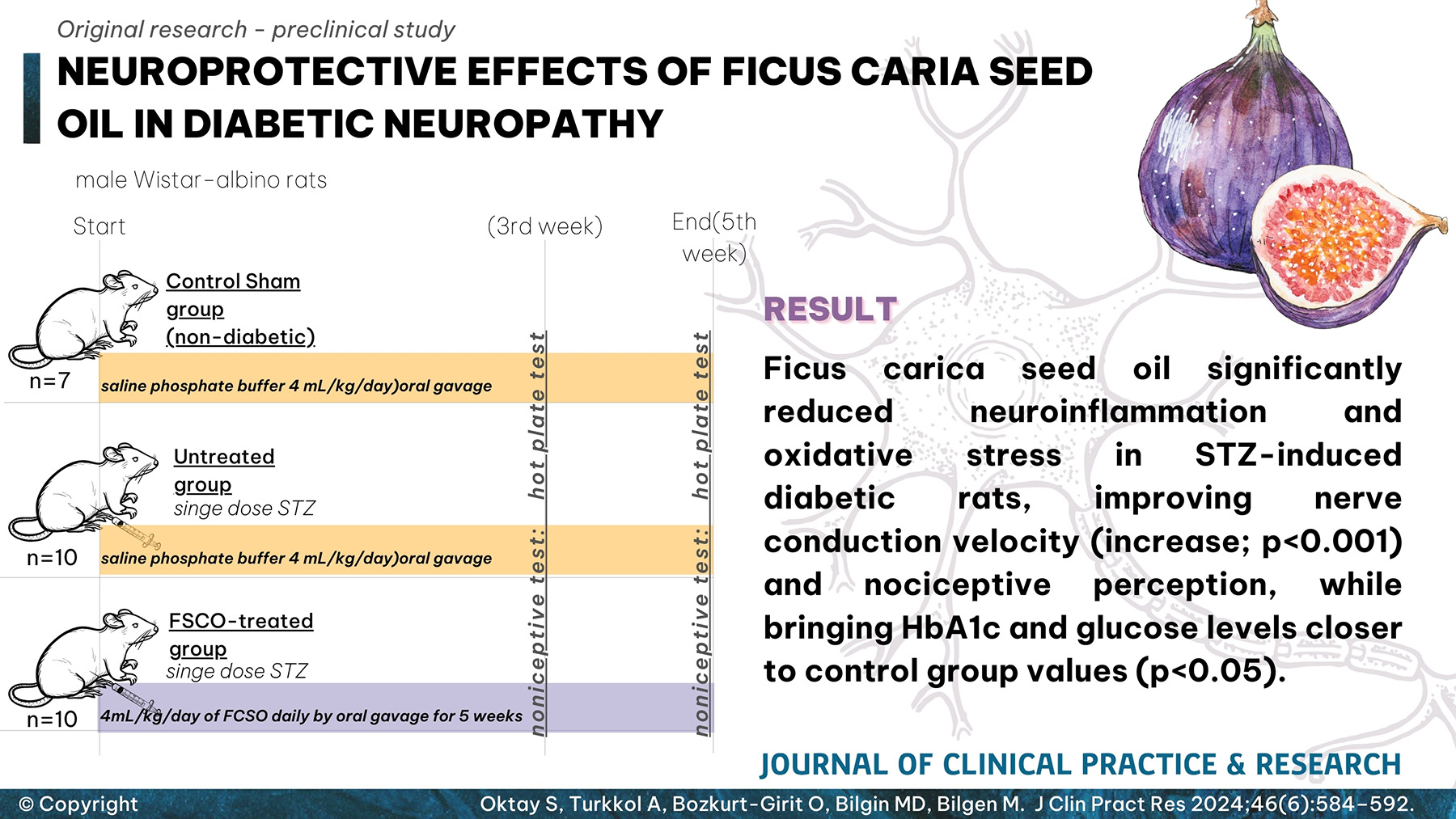2Department of Biophysics, Aydın Adnan Menderes University, Faculty of Medicine, Aydın, Türkiye
Abstract
Objective: Exploring novel therapeutic approaches for diabetic neuropathy (DN) is crucial, and Ficus carica seed oil (FCSO) emerges as a promising candidate due to its rich composition of fatty acids, phenolics, antioxidants, and anti-inflammatory compounds. This study aimed to investigate the effects of FCSO treatment on the progression of DN.
Materials and Methods: Adult male Wistar rats were randomly assigned to control, untreated diabetic, and FCSO-treated diabetic groups. Diabetes was induced by a single intraperitoneal injection of streptozotocin (STZ) at a dose of 50 mg/kg, confirmed by hyperglycemia (>250 mg/dL). The treatment group received FCSO orally at a dose of 4 mL/kg/day for 5 weeks. Blood glucose was monitored at the initiation and conclusion of the treatment, while insulin and glycated hemoglobin (HbA1c) were assessed at the study’s endpoint. The hot plate test was conducted at the 3rd and 5th weeks of treatment. Sciatic nerve electrophysiology was performed, followed by biochemical analyses for markers of inflammation and oxidative stress.
Results: Diabetes resulted in elevated blood glucose and HbA1c levels, along with decreased insulin levels, indicative of diabetic conditions. Increased oxidative stress and inflammation were observed, alongside reductions in nociceptive response and nerve conduction velocity, indicating DN progression. However, FCSO treatment mitigated these effects, restoring markers to levels comparable to those of normal controls.
Conclusion: Early intervention with FCSO appears to counteract the mechanisms leading to DN, exerting neuroprotective and preventive effects. These findings underscore the therapeutic potential of FCSO and highlights its role as a promising treatment against DN.
Graphical Abstract



